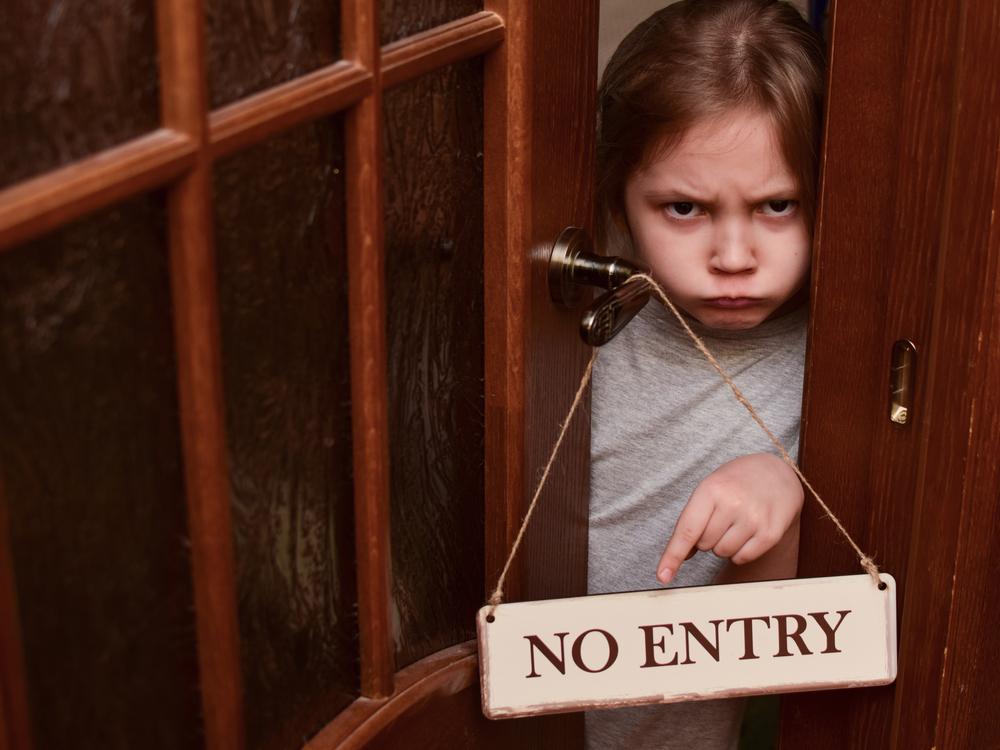1. They Demand Perfection

Narcissistic parents often set unrealistic goals and place high expectations on their children. Demanding perfection in everything they do, this immense pressure robs them of their childhood, causes stress, and puts them in constant fear of failure which may be lifelong.
2. They Never Show Empathy

Children have a lot of big feelings and it’s important that they feel seen and heard. When parents struggle to empathize with their children and understand their feelings they feel invalidated, misunderstood, unsupported, and emotionally neglected.
3. They Use Emotional Manipulation

Parents who are narcissistic use guilt, shame, and manipulation tactics to control their children’s behavior and emotions. This sets kids up for a lifelong struggle of feeling responsible for their parent’s happiness and then feeling guilt or shame if it isn’t achieved.
4. They Make Love Conditional

Loving your children (or anyone for that matter) should be unconditional. If parents put conditions on when affection is given or love is shown, especially if it’s based on the child’s performance and behavior, this makes them feel they have to earn a parent’s love and approval.
5. They Invalidate Emotions

It’s a parent’s job to provide a safe space for children to grow physically and emotionally. When children’s emotions and experiences are dismissed or ridiculed this leads to confusion, self-doubt, and a sense that their feelings are not valid or unimportant.
6. They Undermine Self-Worth

Children crave their parent’s attention, affection, and acceptance and are super sensitive to criticism. When they are subjected to constant criticism and belittling comments it undermines their self-esteem and self-worth and can cause long-term insecurity and emotional damage.
7. They Become Entangled

Narcissistic parents consider their children extensions of themselves rather than independent little people with their own needs and interests. When the boundaries between parents and children are blurred or in the case of parental enmeshment, kids can become confused, feel neglected, and invisible and this can lead them to become lifelong people pleasers.
8. They Gaslight

Parents aren’t always right and children have their own opinions, perceptions, recollections, and feelings. A narcissistic parent will always deny their children’s reality, causing them to question their perception and memories leading them to feel confused and mistrust in their own judgment.
9. They Encourage Sibling Rivalry

This is perhaps one of the worst forms of narcissistic parental behavior. Some parents will play siblings off against each other, creating rivalry and competition in a bid to maintain control by fostering jealousy and discord.
10. They Exert Obsessive Control

These types of narcissistic parents exert excessive control over every aspect of their children’s lives. This unhealthy level of control stifles a child’s sense of independence, stunts their personal growth, and disrupts their ability to make decisions, think for themselves, or pursue their own interests.
11. They are Emotionally Neglectful

Narcissistic parents are pros at meeting their children’s physical needs but when it comes to emotions that is a different story. When a child’s emotional needs are ignored or neglected altogether, leading to feelings of loneliness, abandonment, and worthlessness.
12. They Exploit

Narcissistic parents tend to have little to no empathy and may not even see their children as a person let alone support and encourage their own dreams and aspirations. Instead, their child will be used to fulfill the parent’s own needs so they can push them to achieve social status, personal validation, or even financial gain.
13. They Humiliate in Public

Narcissistic parents may humiliate their children in front of others to assert dominance and control, damaging the child’s self-respect and social confidence.
14. They Disrespect Boundaries

It’s perfectly normal for children to want to forge their sense of independence and feel like they have some privacy and personal space. What isn’t normal or healthy is when parents disregard a child’s need for boundaries and disrespect their desire for space and privacy.
15. They Instill Fear
 provided by Shutterstock
provided by Shutterstock
Fear is a tool commonly used by narcissistic parents to exert and maintain control over their children. Whether that’s through threats, anger, depriving them of something they want, or unpredictable behavior, creating a fearful environment causes anxiety, insecurity, and chronic stress in a child.








